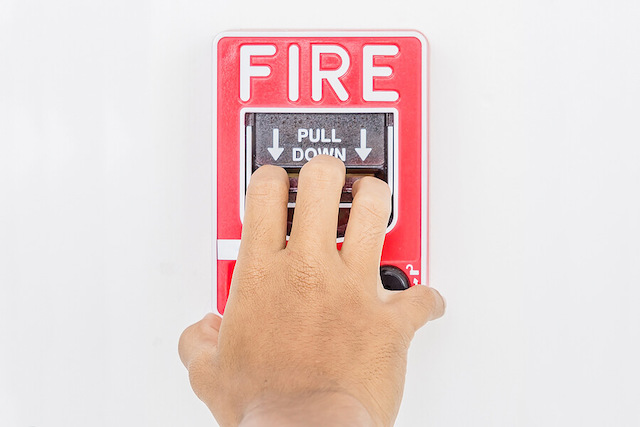Smoke detectors are a key component that makes fire suppression systems effective and always ready to respond to the threat of fire. As one of the first lines of defence, smoke detectors can detect both smouldering or slow-burning fires and flaming or fast-burning fires through the particles of the smoke they emit. This helps notify the occupants about the danger and allows them enough time to exit to safety. But just like other parts of the fire suppression system, smoke detectors also need regular check-ups to ensure they are in full working order and actively monitoring for signs of fire.
Why should you frequently maintain smoke detectors?
No electronic device is made to last, and smoke detectors are no exception. Their batteries eventually run out, they become less sensitive over time, and dust and dirt can also affect their performance. Hence, regular check-ups are necessary to address these issues and make sure each unit is working as intended, given how important their role is in preserving life and property from fires.
Checking on hardwired and battery-powered smoke detectors
There are generally two ways of powering smoke detectors, either with a battery or a dedicated power connection. The former can be easily installed anywhere without much know-how or the help of professional electricians. Still, they run the risk of running out of power and being ineffective if left unchecked. Therefore, replacing their batteries every month and checking their test function immediately is recommended to ensure they are working properly. Avoid using used batteries as replacements even if you think they are still fresh.
On the other hand, hardwired smoke detectors run on the building's main power source but come with backup batteries. This failsafe backup means the smoke detectors can still run during a power outage. As such, they still need to have their batteries checked for good measure to ensure they have enough power. In addition, it is advised to test hardwired detectors each month as this ensures that the devices continually receive a stable electrical supply and that their sensitivity and functionality remain intact.
Malfunctions
Although smoke detectors are generally highly reliable, they are not immune to malfunctions. If a smoke alarm starts chirping with a low-power sound or something similar, this may be a sign that a battery replacement is required immediately. If some smoke detector units are prone to false alarms (typically ionisation alarms) or if they make short beeps despite nobody touching them, it is best to consult the device manual or get a professional to do an inspection.
Conclusion
Incidents of fire can happen at any moment and time of the day, so it is paramount to have your fire suppression system's fire detector units working and dependable at all times. This is because they serve as primary components for triggering the entire system, and timely detection is key to preventing the spread of an outbreak.
If you want to learn more about fire extinguishing systems, their related components and respective maintenance regime, and more, check out our fire safety course in Singapore. TenLearn is an online learning platform that offers various courses on upskilling, from SCDF-approved fire safety management courses to security and cybersecurity courses. Update your knowledge, hone your skills, and gain CPD points by attending an FSM course in Singapore on TenLearn today!


Write a public review